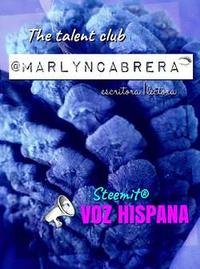Dialogue Between Woolf's "The Mark on the Wall" and O’Brien’s "Good Form"
Image in the Public Domain (Max Pixel)
Metafictional literature has been approached through psychoanalysis and politics. It has been called narcissistic by Hutcheon (1987). Other authors, inspired by the Russian Formalist concept of defamiliarization, have explored its political facet; like Waugh (1984), for instance, who identifies a quasi Marxist process of demystification that would lead to the inquiry of the fictionality of the world outside the literary text (Kohn par. 1).
Many authors have exercised, studied, and critiqued this self-reflective literature, very difficult to get at first. Although many have placed this literature in post modern times, we know that Cervantes’ Don Quixote in the fifteenth century and pioneer Sterne’s “The Life and Opinions of Tristram Shandy, Gentleman” in the eighteen century were notoriously self-reflective, to name some.
Now, a literary text is considered metafictional when it self- consciously addresses its mechanisms of fiction.
William Timothy O’Brien (1946-) is the author of “Good Form,” a story which ponders fiction, truth, and form. He graduated in political science in 1968, one of the best known American authors; also a journalist, was a man dragged to war, a soldier who fought a war he hated and that later on would recur to the theme of war in his narrative.
The other story, the one we are going to compare to “Good Form,” belongs to the inventory of Virginia Woolf (1882-1941), British novelist, short story writer, and essayist, one of the most famous modernist literary figures of the twentieth century.
We are going to establish a dialogue, then, between these two short stories, in order to see how the argument of the former echoes the latter’s. Based upon the theories of literary representation, we are going to find that the sign as a representation of the object conveys to the view of a third reality which derives from the relation of concepts that come up to the realization of that object: the space for the différance, term coined by Derrida in the late twentieth century, which many other authors have referred to ever since, and which refers both to differ and defer.
Virginia Woolf’s “The Mark on the Wall” is a reflection on how we perceive reality; which leads to an ultimate appreciation of truth. While Tim O’Brien’s “Good Form” exposes some considerations on two different kinds of truth, a happening-truth and a story-truth; it works as a justification of the whole book where it belongs: The Things They Carried; it tells “why this book is written as it is” (179).
O Brien's "Good Form" offers reasons concerning a dichotomy: story-truth and happening-truth. Its dialectics exposes a link of subjectivity between fact and fiction; the resulting truth is such link. Thus, the author explores the space between sensible reality and what is conceived between the subject observing and that reality, and so between this reality and the signs by which it is represented. War is a main theme for the plot, but it does not have the leading role once the argument has been teased out. This text’s theme is itself. O’Brien’s truth of the war is one of the conclusions of having grasped the authentic argument.

Thanks for reading this part 1/4.

Derrida, Jacques. “Una teoría de la escritura, la estrategia de la reconstrucción”. Anthropos: Revista de Documentación Científica de la Cultura Nº 93. 1989: 19-21.
Eco, Umberto. Lector in Fabula. Barcelona: Lumen, 1981.
Enaudeau, Corinne. La paradoja de la representación. Lanús: Paidós, 1999. 27-48
Kohn, Robert. “Neurotic narrative: Metafiction and object-relations theory.” (N.p.)
O.Brien, Tim. “Good Form.” The Things They Carried. New York: Broadway Books. 1998
Pavel, Thomas. Mundos de Ficción. Caracas: Monte Ávila Editores Latinoamericana, 1995. 30, 90.
Woolf, Virginia. “The Mark on the Wall.” A Haunted House and Other Short Stories. New York: Hardcourt, 1972.
Posted from my blog with SteemPress : https://marlyncabrera.timeets.com/2019/01/27/dialogue-between-woolfs-the-mark-on-the-wall-and-obriens-good-form/

Soy miembro de @talentclub.

To listen to the audio version of this article click on the play image.

Brought to you by @tts. If you find it useful please consider upvoting this reply.
Congratulations @marlyncabrera! You have completed the following achievement on the Steem blockchain and have been rewarded with new badge(s) :
Click here to view your Board
If you no longer want to receive notifications, reply to this comment with the word
STOPTo support your work, I also upvoted your post!
What a great expose on the various kinds of truth. Nice work! I've read Tim O'Brien's The Things They Carried. It's very good. My son just had to read it in senior English as well, so I re-read some of the stories in order to discuss with him. It's a very powerful collection. I studied Virginia Woolf back in graduate school and am a huge fan. It's interesting to juxtapose these two authors against one another. It wouldn't have crossed my mind!
Thank you, @Jayna. I really appreciate your comment; you know I am your fan ♥
This is an essay I wrote in graduate school, twenty years ago in North American Lit (we were studying O Brien's "How to Tell a True War Story"; I liked it so much that I read the whole book); I told my teacher I liked to establish dialogues between "distant authors," and that I knew some stories by Woolf which would be perfect. I was afraid she would say no because Woolf is British, but she said there was no problem, so I did it. I have other dialogues, but so far I had not dared to publish them on my blog because I would have to revise and edit those old papers, but I am doing it now.
My mind does as it pleases these days. My head and my heart are deep into what is happening in my country, so I guess I'll be using old, unpublished material to keep my blog going.
Thanks for your words. Huge hug! ☻